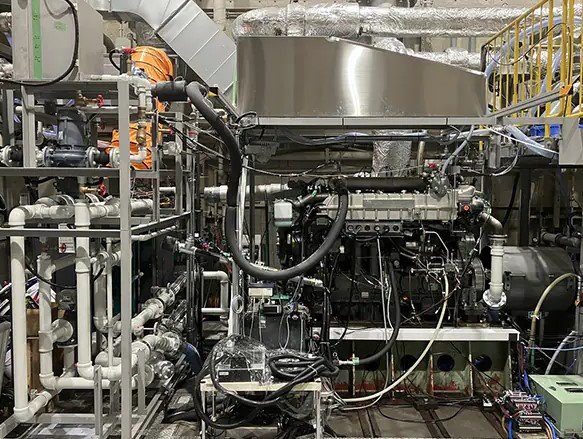Yanmar Power Technology Receives Approval for Hydrogen-Fueled Engines Production Plan
Yanmar Power Technology, a subsidiary of Japan’s Yanmar Holdings, has been given the green light by the government for its innovative hydrogen-fueled engines and hydrogen fuel cell systems production plan.
The approval came on January 9, 2025, as part of Japan’s Ministry of the Environment and Ministry of Land, Infrastructure, Transport and Tourism’s “Zero Emission Ship Construction Promotion Project”. This initiative aims to promote the construction of zero-emission vessels using alternative fuels like ammonia and hydrogen.
With an investment of over JPY 120 billion (approximately $777.8 million) in production facilities, Japan is striving to lead the way in next-generation ship technology and capture the world’s top share of eco-friendly ships.
Advancing Towards Zero-Emission Ships
Yanmar plans to establish an ‘advanced’ production system for zero-emission ships powered by hydrogen and batteries. The company’s goal is to develop essential production facilities for hydrogen-fueled propulsion systems to reduce CO2 emissions, enhance industrial competitiveness, and drive economic growth.
As part of the YANMAR GREEN CHALLENGE 2050 initiative, Yanmar Power Technology is committed to building a sustainable society. In August 2023, the company introduced a hydrogen fuel cell system for marine applications and successfully conducted onshore tests of a pilot-ignition hydrogen 4-stroke high-speed engine for coastal vessels.
Accelerating Hydrogen Engine Production Targets
With support from the Zero Emission Ship Construction Promotion Project, Yanmar aims to expedite its hydrogen engine production targets from 2050 to 2040. The company also plans to achieve 100% carbon-neutral marine power products, including hydrogen engines, by 2045—surpassing the International Maritime Organization’s greenhouse gas reduction goals.
In a strategic move, Yanmar Holdings is restructuring its subsidiary, Yanmar Power Technology, into two separate entities by October 2025. One company will focus on industrial engines, while the other will specialize in large power products.

